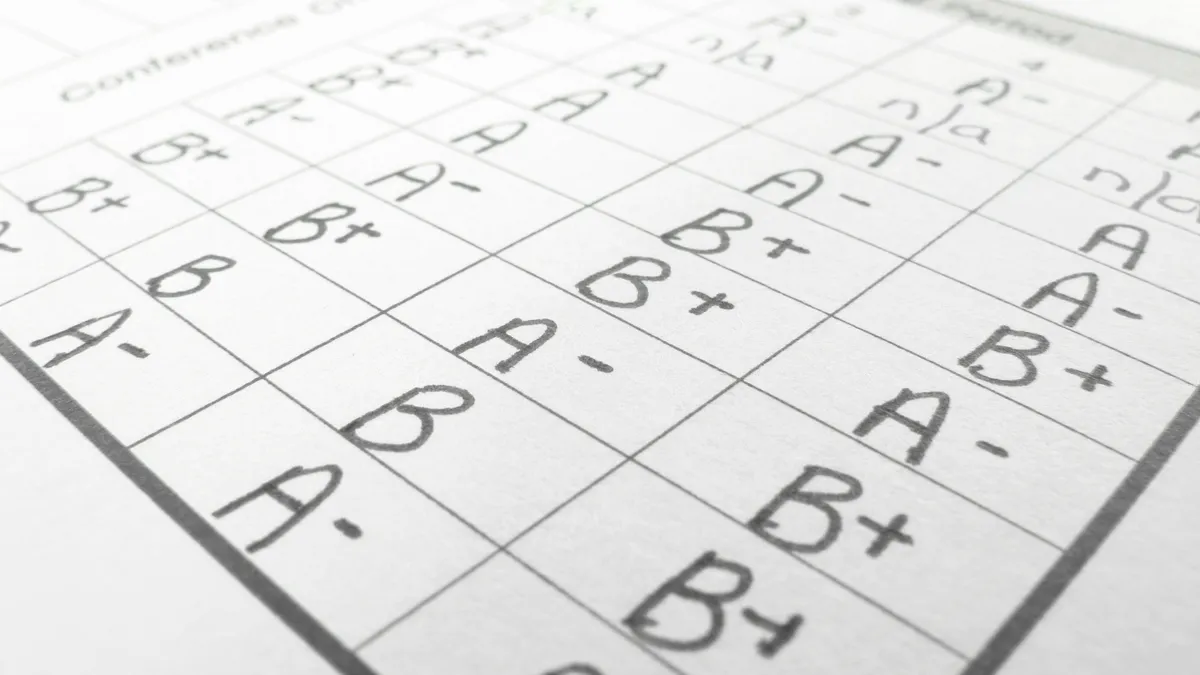Teacher preparation programs are getting better at helping teachers equip students with the skills to become good readers, according to the National Council on Teacher Quality’s latest review of more than 1,000 undergraduate, graduate and alternative pathway programs.
Compared to 2013, at least 10% more programs “now provide adequate instruction in each of the five components of scientifically based reading” — phonemic awareness, phonics, fluency, vocabulary and comprehension, the report said. NCTQ gave an A or B to more than half of the traditional programs reviewed, but phonemic awareness, the authors wrote, still gets the least attention in teacher education programs.
“The scale is now tipping in favor of science and the real winners here are the students who will learn to read,” Kate Walsh, NCTQ president, said in a press release.
Florida International University, the University of Mississippi, East Tennessee State University and Utah State University were among those making the list of “exemplary” undergraduate programs, while 32 additional programs made the “high-performing” list.
No graduate programs were considered exemplary, and only six made the list of high performers. The report noted a “stark difference” between undergraduate and graduate programs and notes the fact graduate programs typically offer only two courses in reading instruction — compared to three in undergraduate programs — doesn’t fully explain why the undergrad programs cover more foundational skills in reading.
The report also identified only four alternative teacher preparation programs as high performers, saying because of their “fast-track design,” most don’t adequately prepare elementary educators to teach reading.
“The vast majority of nontraditional programs fail to provide adequate reading instruction or a passing score on a strong, reading-specific licensing test prior to their candidates becoming teachers of record,” the report said.
At Relay Graduate School of Education, a nontraditional program that prepares career switchers and recent college graduates to be teachers, Kim Underwood, Relay’s director of early-childhood education, said as the school updates its curriculum, it’s “working with experts in the field to ensure that our graduate students are receiving strong instruction on this using the most up-to-date research.”
But she added time is a factor.
“The biggest challenges in getting early-career teachers the skills, research and strategies to effectively instruct foundational reading skills are time and support,” she said, adding it’s also important for the K-12 schools that hire graduates to provide “ongoing professional development in this area.”
Reading wars continue
NCTQ’s process for evaluating teacher prep programs has long been controversial, and this report isn’t likely to be an exception. The organization reviewed reading course syllabi, lecture topics, assignments, assessments and textbooks, but critics say the organization’s review of documents is not a true reflection of programs. The American Association of Colleges for Teacher Education, the membership association for teacher prep programs, has said NCTQ does not “serve as an appropriate and objective arbiter for educator preparation program quality.”
But regardless of how the ratings are received, the report will add to the conversation about early literacy at a time when some say reading performance in U.S. schools is facing a "crisis."
Just last week, the Council of Chief State School Officers (CCSSO) brought together state superintendents, reading experts and others in Washington to discuss concerns over recent National Assessment of Educational Progress results showing declines among 4th and 8th graders in reading proficiency.
"There seems to be more state-level attention to it than every before," said Emily Solari, a reading education professor at the University of Virginia in Charlottesville and has been working to strengthen the program since taking the position.
Also, in survey results last week, 60% of those responding to an International Literacy Association survey said teacher preparation programs are not adequately preparing teachers to provide “effective reading instruction.”
But some teacher educators suggest focusing on the “science of reading” is taking attention away from other methods of teaching children to read. In a recent commentary, two teacher educators wrote “phonics-first advocates” are dismissing all other methods of instruction.
“While phonics, or other teaching strategies, may work effectively in one context, it does not guarantee the same results with different teachers or students,” they wrote. They also point to recent documents from International Literacy Association (ILA) and the National Council of Teachers of English that support a broader view of what it takes for children to become good readers.
Solari doesn't see it as an either or debate.
"Nobody who says we need to do phonics is saying we have to do phonics only," she said. "The truth is, we have kids in this country that don't know how to read."
In last week’s ILA survey, using a balanced approach was the top “critical topic” for teachers, school leaders and higher education professionals. But 38% of teachers chose phonics as a top issue, compared to 20% of those in higher education.
AACTE would not respond to questions about whether its focus on reading instruction has increased or whether the organization has noticed a shift in how member institutions are addressing preparation in this area.
More on Mississippi
The NCTQ report adds another layer to Mississippi’s rising performance on NAEP. The state was the only one to see increases in reading scores at 4th grade.
In the report, Mississippi’s teacher education programs were graded higher than those in any other state, with Utah following close behind. Of the 13 programs reviewed in Mississippi, 12 received an A or B. The only one that received a C was an alternative route program.
At the Mississippi Department of Education, the “concerted effort” to work with teacher preparation programs around early literacy has been underway since 2007, said Debra Burson, the director of educator preparation for the department. With research and support from the Barksdale Reading Institute, a nonprofit, teacher preparation programs came together to create common syllabi for two early literacy courses.
University faculty members also receive professional development on reading instruction, Burson said, who was a faculty member at Millsaps College in Jackson until 2017.
While 3rd grade reading tests are often controversial, Burson added the state’s Literacy-Based Promotion Act has been a key part of the MDE’s focus on literacy.
“What gets measured, gets done,” she said.








 Dive Awards
Dive Awards













